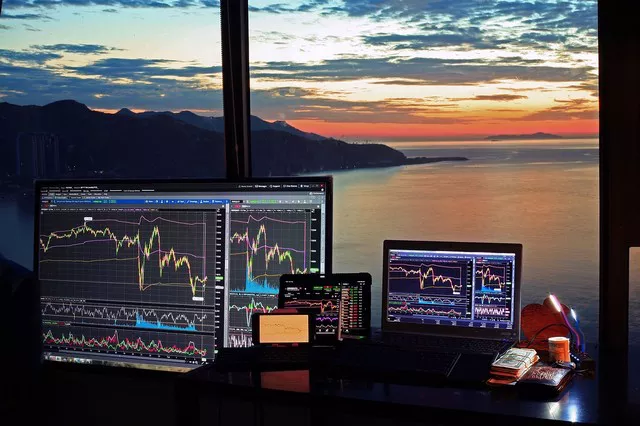Gas futures are a vital component of the global energy market, offering a way for businesses, investors, and consumers to manage and speculate on future natural gas prices. These futures contracts provide participants with valuable tools to hedge against price fluctuations, ensuring stability in the energy sector.
Understanding Gas Futures
Gas futures are financial contracts that obligate the buyer to purchase or the seller to deliver a specific quantity of natural gas at a predetermined price on a future date. These contracts derive their value from the performance of natural gas in physical markets. Gas futures serve multiple purposes, including risk management, speculation, and price discovery.
1. The Underlying Asset
The underlying asset of a gas futures contract is natural gas, a hydrocarbon gas mixture primarily composed of methane. Natural gas is a crucial source of energy used for heating, electricity generation, and as a fuel in various industries.
2. Contract Specifications
Each gas futures contract has specific contract specifications, including the following:
a. Contract Size: The contract size represents the quantity of natural gas covered by a single futures contract. Typically, it is measured in units like British thermal units (BTUs) or cubic feet.
b. Delivery Location: Gas futures contracts specify the delivery location where physical delivery of natural gas must occur. Common delivery points include major natural gas hubs and pipelines.
c. Tick Size: The tick size is the minimum price movement allowed for the futures contract. It determines the smallest increment by which the contract’s price can change.
3. Long and Short Positions
In the world of gas futures, two parties are involved: the buyer (long position) and the seller (short position). The buyer commits to purchasing natural gas at the agreed-upon price when the contract matures, while the seller commits to delivering the gas. However, many gas futures contracts are closed out before expiration through offsetting trades, allowing traders to profit from price changes without taking physical delivery.
4. Leverage
Gas futures contracts offer leverage, allowing traders to control a substantial amount of natural gas with a relatively small amount of margin. While leverage amplifies potential gains, it also increases the risk of substantial losses, making risk management crucial when trading gas futures.
Uses of Gas Futures
Gas futures serve various purposes in the energy sector:
1. Risk Management
One primary use of gas futures is risk management. Businesses and utilities that rely on natural gas as a fuel source can use futures contracts to hedge against price fluctuations. By locking in future prices through gas futures, they can protect their budgets and ensure a stable supply of energy.
2. Speculation
Traders and investors engage in gas futures trading to speculate on future price movements. They aim to profit from price fluctuations by taking positions based on their expectations of natural gas market trends.
3. Price Discovery
Gas futures play a crucial role in price discovery. The prices of futures contracts are influenced by supply and demand dynamics in the futures market, reflecting market participants’ expectations about future natural gas prices. These prices can provide valuable insights into market sentiment and direction.
Cash Settlement vs. Physical Delivery
Gas futures contracts can be settled in one of two ways: cash settlement or physical delivery. In a cash-settled contract, no physical gas changes hands; instead, the difference between the contract price and the actual market price is settled in cash. In a physically delivered contract, the natural gas must be delivered to the agreed-upon location.
Types of Gas Futures Contracts
There are several types of gas futures contracts, each catering to specific needs within the energy industry:
1. Henry Hub Natural Gas Futures: These futures contracts are based on natural gas delivered to the Henry Hub pipeline in Louisiana, a significant hub in the U.S. natural gas market.
2. European Gas Hub Futures: In Europe, gas futures contracts are often linked to major gas hubs like the National Balancing Point (NBP) in the United Kingdom or the Title Transfer Facility (TTF) in the Netherlands.
3. Heating Oil/Natural Gas Spread Futures: These contracts represent the spread between heating oil and natural gas prices, providing a tool for hedging or speculating on the relationship between the two energy sources.
4. Calendar Month Futures: Calendar month futures allow traders to take positions on natural gas prices for specific months in the future. They are commonly used for short-term hedging and speculative purposes.
Market Factors Impacting Gas Futures
Several factors influence the prices of gas futures contracts:
1. Supply and Demand: Changes in natural gas supply and demand dynamics can have a significant impact on futures prices. Factors like production levels, storage capacity, and weather conditions play a crucial role.
2. Weather: Weather patterns, particularly during the winter months, can affect natural gas demand for heating purposes. Severe cold spells or warm winters can lead to price volatility.
3. Economic Conditions: Economic factors, such as economic growth, industrial activity, and energy consumption, can impact natural gas prices. Strong economic performance often leads to increased energy demand.
4. Geopolitical Events: Geopolitical events, including conflicts or disruptions in gas-producing regions, can affect supply and lead to price spikes.
Conclusion
Gas futures are a vital component of the global energy market, offering a way for businesses, investors, and consumers to manage and speculate on future natural gas prices. By understanding how gas futures work, their contract specifications, and the factors that influence their prices, market participants can make informed decisions to effectively manage risk and capitalize on opportunities in the dynamic world of natural gas trading.


